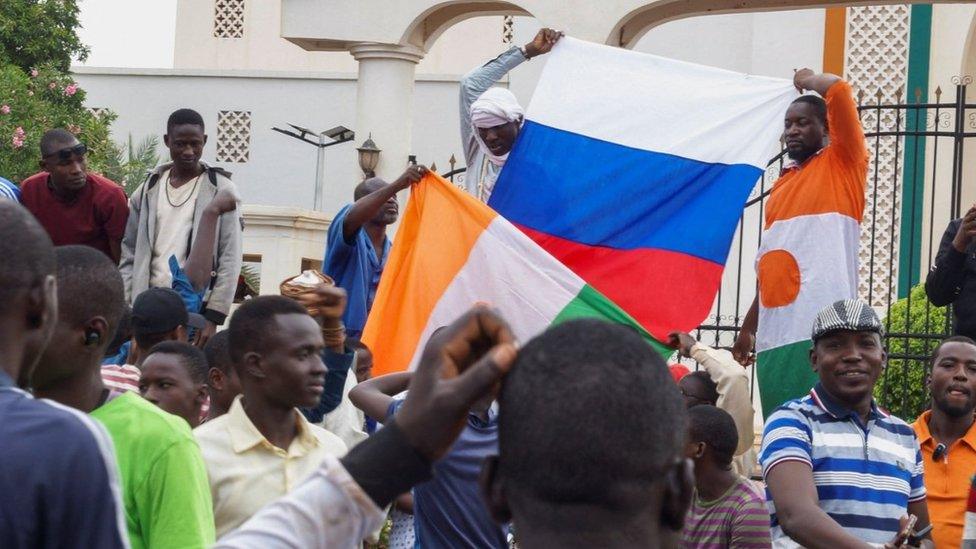Niger: President Mohamed Bazoum calls on US for help after coup
- Published
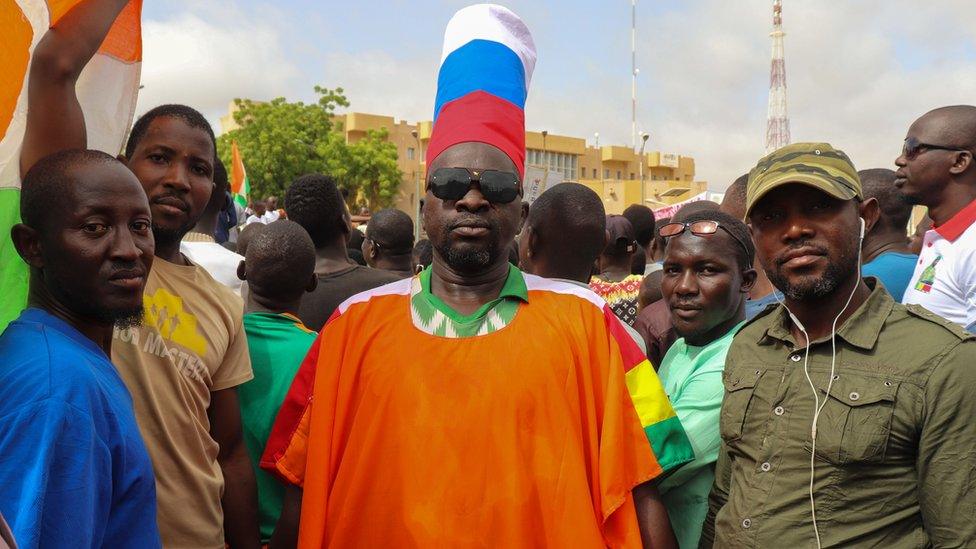
A supporter of the coup wears a hat in the colours of the Russian flag during a rally in the capital on Thursday
Niger's ousted leader has urged the US and "entire international community" to help "restore... constitutional order" after last week's coup.
In an opinion piece in the Washington Post,, external President Mohamed Bazoum said he was writing "as a hostage".
He also warned that the region could fall further under Russian influence, via the Wagner Group which already operates in neighbouring countries.
Niger's West African neighbours have threatened military intervention.
Defence chiefs from the region finished a three-day meeting in Nigeria's capital, Abuja, on Friday saying they had drawn up a detailed plan for the use of force for leaders from the regional bloc Ecowas to consider.
"All the elements that will go into any eventual intervention have been worked out here, including the resources needed, the how and when we are going deploy the force," Abdel-Fatau Musah, Ecowas commissioner for political affairs, peace and security said.
Nigeria's President Bola Tinubu on Friday wrote to lawmakers seeking their support for the sanctions and military action. His letter included a reference to a "military build-up and deployment of personnel".
On Thursday, the coup leaders announced they were withdrawing the country's ambassadors from France, the US, Nigeria and Togo.
In a statement read out on national television, they said the functions of the four ambassadors had been "terminated".
The junta also announced it was cutting bilateral military ties with former colonial power France. The country currently has around 1,500 troops in Niger and has been part of a force combating Islamist militancy.
France has responded by saying that only "legitimate" governments could alter agreements.
Ecowas has imposed sanctions and given the junta until the end of the weekend to reinstate the president or face the possibility of military intervention.
The regional bloc is also trying to pursue a diplomatic solution, but a delegation that arrived in Niger on Thursday left after just a few hours without any sign of progress.
Niger is a significant uranium producer - a fuel that is vital for nuclear power - and under Mr Bazoum was a key Western ally in the fight against Islamist militants in West Africa's Sahel region.

Niger coup: The basics:
Where is Niger? It's a vast country in West Africa, and one of the poorest countries in the world, but has been a key Western ally in the fight against Islamist militants.
Why was there a coup? The military said it seized power because of insecurity and the economic situation, but there have been suggestions it came after reports the coup leader was about to be sacked.
What next? It's feared the military may seek to switch allegiance to Russia and close French and US bases there; for their part, Niger's neighbours have threatened to use force to end the coup.

In his newspaper article, Mr Bazoum warned the coup, if it succeeded, would have "devastating consequences for our country, our region and the entire world".
"Fighting for our shared values, including democratic pluralism and respect for the rule of law, is the only way to make sustainable progress against poverty and terrorism," Mr Bazoum wrote.
"The Nigerien people will never forget your support at this pivotal moment in our history."
Mr Bazoum also warned of the coup leaders' links to Russian mercenary group Wagner, which operates elsewhere in the region and has been seen by many as exercising a malign influence in Niger.
"The entire central Sahel region could fall to Russian influence via the Wagner group, whose brutal terrorism has been on full display in Ukraine," wrote Mr Bazoum.
Many supporters of the coup in Niger have been chanting pro-Russian slogans and wearing the colours of the Russian flag.
On Thursday, thousands of people took to the streets of Niger's capital, Niamey, in a peaceful demonstration backing the coup and criticising other West African countries for imposing financial and trade sanctions on Niger.
There is no indication that Wagner was involved in the overthrow of Mr Bazoum, according to the US - but Wagner's leader has reportedly described the coup as a triumph. The Russian government, however, has called for the ousted president to be returned to power but stressed this should be done peacefully.
The military takeover has also been internationally condemned, including by the EU, UN and the US.
Earlier this week, US Secretary of State Antony Blinken spoke to Mr Bazoum on the phone, with the US saying afterwards it was committed to the restoration of Niger's democratically elected government.
Mr Bazoum, the first democratically elected president to succeed another in Niger, was detained by his own guards last week. Coup leader Gen Abdourahmane Tchiani has been installed as head of state.
Niger is a key part of the African region known as the Sahel, an area plagued by jihadists and beset by military regimes. In recent years it had been seen as an example of relative stability, while its neighbours Mali and Burkina Faso succumbed to military coups.
It hosts both French and US military bases which are used to fight Islamist insurgents.
President Bazoum's government has been a partner to European countries trying to stop the flow of migrants across the Mediterranean Sea, agreeing to take back hundreds of migrants from detention centres in Libya. He has also cracked down on human traffickers.
Niger coup: More trouble for the Sahel region?
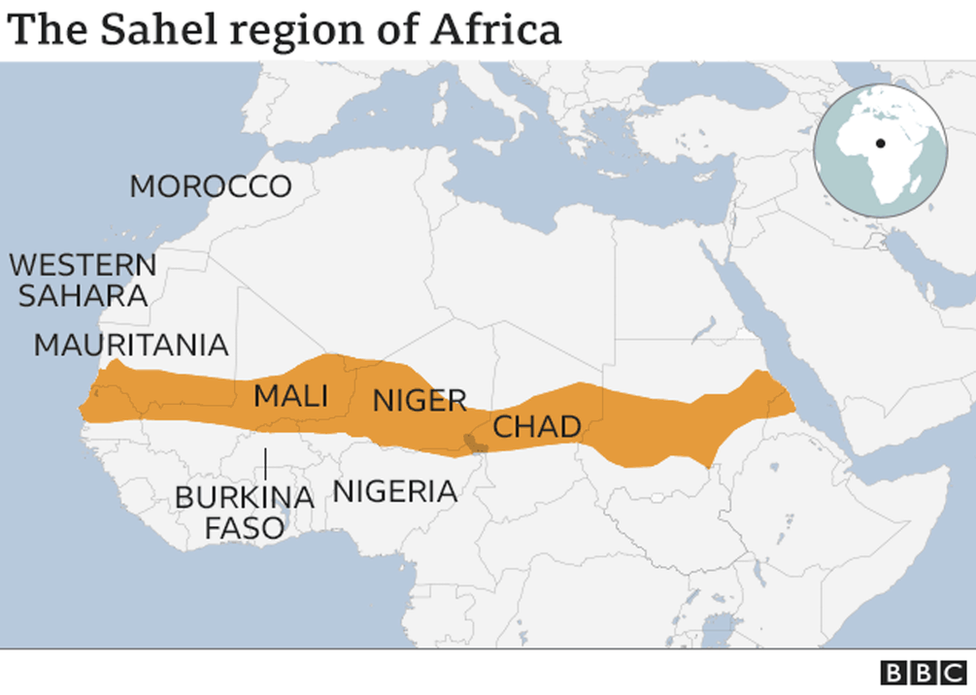
Related topics
- Published28 July 2023
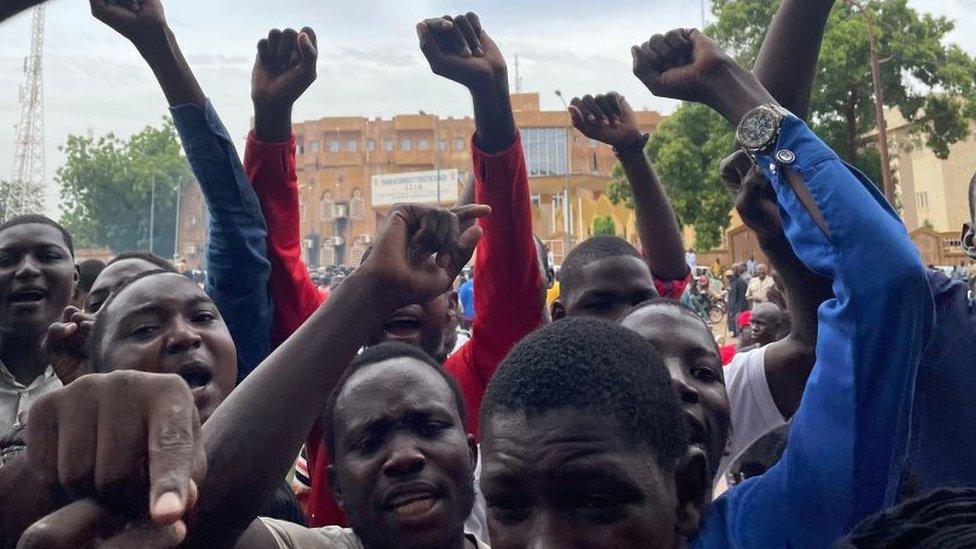
- Published1 August 2023
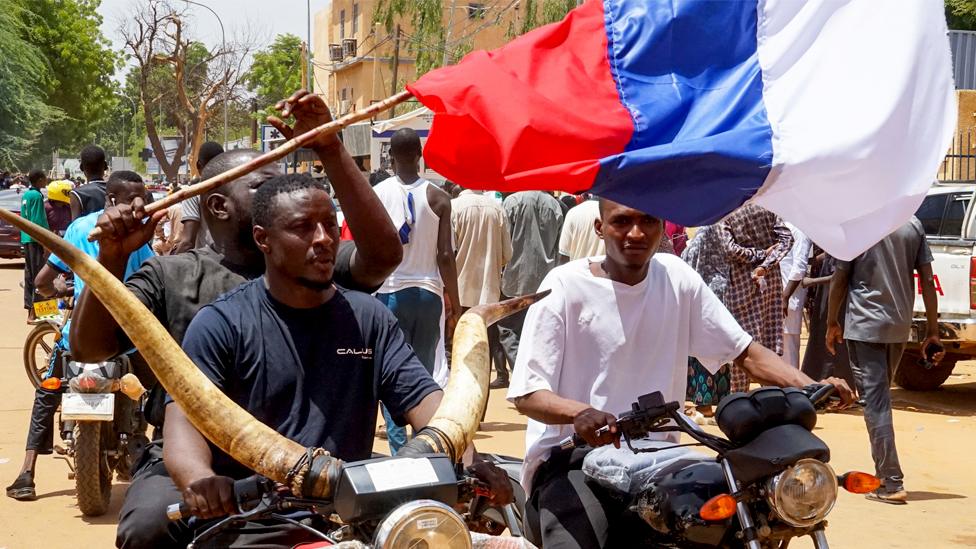
- Published2 August 2023
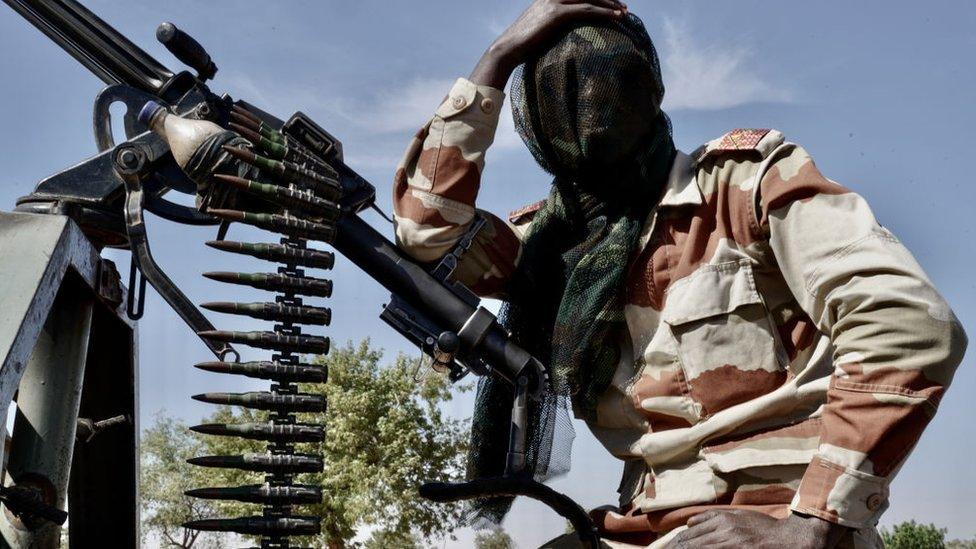
- Published30 August 2023
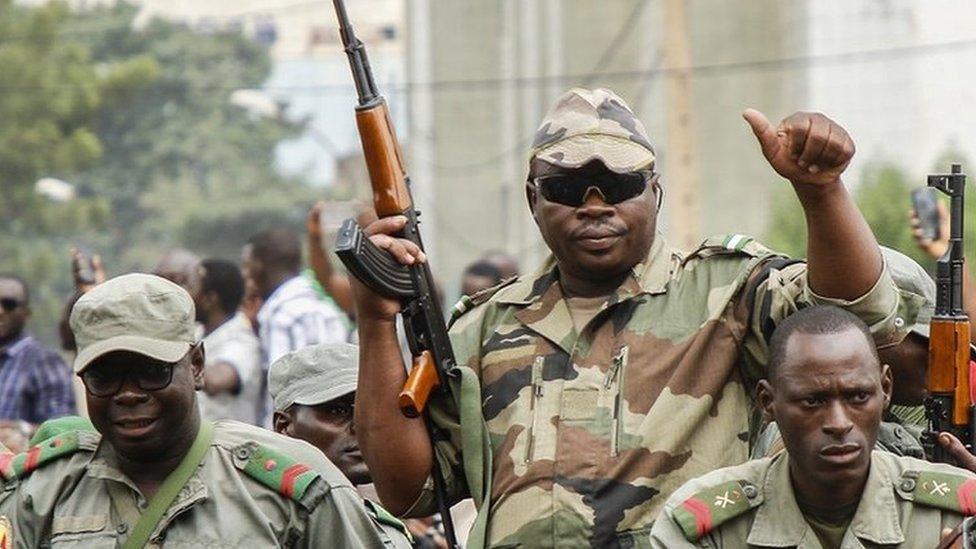
- Published27 July 2023
